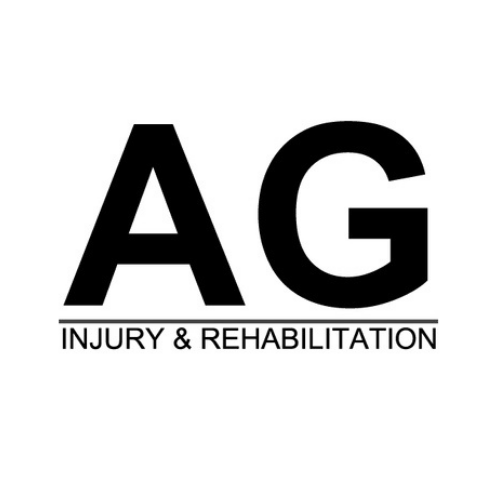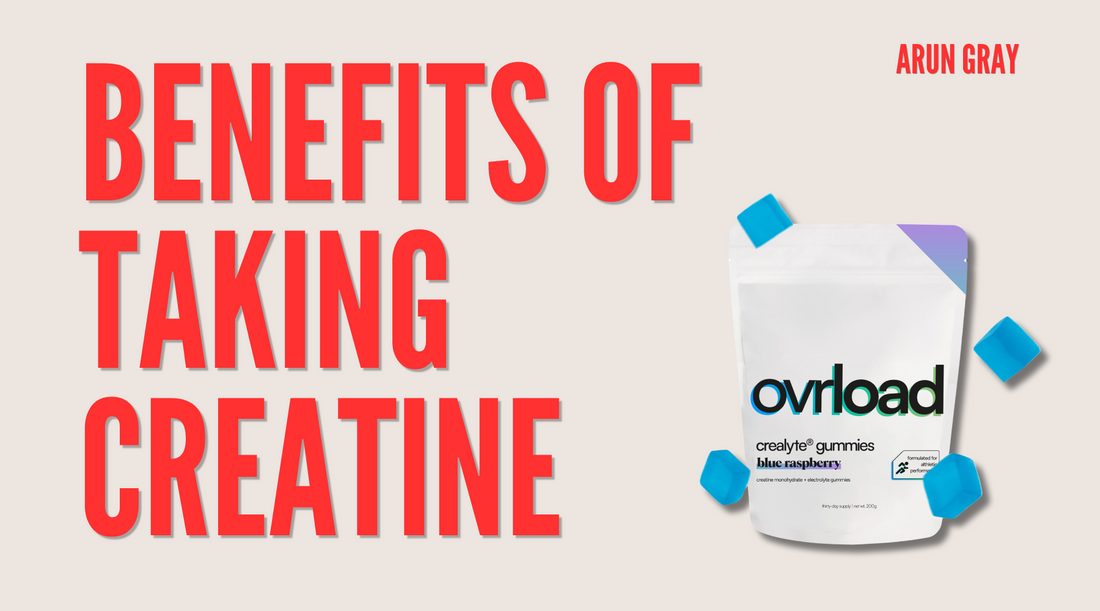When it comes to performance-enhancing supplements, creatine stands in a league of its own. While many fitness products come and go with questionable results, this naturally occurring compound has consistently proven its worth through decades of scientific research and real-world success stories.
From weekend warriors to elite athletes, millions have discovered how creatine can transform their fitness journey. But what's particularly fascinating is how this powerhouse supplement extends far beyond just building muscle - it's showing promise in everything from brain health to aging gracefully.
Increased Muscle Strength and Power
Creatine works as a natural compound in your body that helps create ATP, the main energy source for muscle contractions. When you take creatine supplements, your muscles store more phosphocreatine, which leads to faster ATP production during intense workouts.
Scientific studies show clear results in strength gains. Athletes typically see a 5-10% increase in their maximal strength when using creatine supplements. College football players showed notable improvements in their key lifts - their bench press went up 5.2%, power clean increased by 3.8%, and squat performance jumped by 8.7%.
The combination of creatine supplementation with resistance training produces even better results. One study found that participants who took creatine while weight training gained 8% more muscle strength compared to those who only trained.
Enhanced Muscle Growth and Size
Creatine supplements make a measurable impact on muscle mass when combined with regular weight training. Studies show well-trained athletes gained an extra 5.7 pounds (2.6 kg) of muscle mass through creatine supplementation. Training with creatine can speed up muscle growth by about one-third compared to working out without it.
Creatine monohydrate stands out as the most effective form for building muscle size. It works by increasing cell hydration, boosting IGF-1 levels in the body, and supporting protein production in muscle tissue. The effects tend to be more noticeable in younger people who train regularly. While results can vary between individuals, consistent supplementation paired with proper resistance training creates optimal conditions for muscle development.
Improved Exercise Performance
Creatine gives athletes a noticeable edge in high-intensity, short-duration activities. Studies report a 19.6% boost in anaerobic peak power output among participants taking creatine supplements. The benefits show up clearly in weight lifting, sprinting, and high-intensity interval training.
Athletes who take creatine can often complete more reps and sets during their workouts. This increased training volume leads to better overall fitness gains over time. The performance improvements appear across all fitness levels - from beginners to professional athletes.
While creatine works best for explosive movements and strength training, some research points to benefits in endurance activities too. The key is proper supplementation combined with consistent training. For optimal results, athletes should maintain good hydration levels while using creatine.
Faster Post-Workout Recovery
Athletes who take creatine monohydrate often experience shorter recovery times between workouts. The supplement acts by reducing muscle damage and inflammation that typically occur after intense training sessions. Studies show creatine helps muscles replenish glycogen stores more efficiently, getting you back to peak performance faster.
The compound's cell-hydrating properties play a key role in limiting muscle soreness and structural damage after exercise. Athletes using creatine can maintain better performance levels even during challenging training phases where workout volume is high.
For the best recovery results, take 3-5 grams of creatine daily after completing your initial loading phase. This consistent intake helps muscles retain optimal creatine levels, supporting faster bounce-back between training sessions. Remember to pair supplementation with proper nutrition and rest to maximize these recovery benefits.
Boosted Brain Function and Cognitive Performance
Creatine doesn't just help your muscles - it also supports brain health by crossing the blood-brain barrier and providing energy for mental tasks. Studies point to improvements in both memory function and mental processing speed when people take creatine supplements work effectively.
The effects become more noticeable during mentally demanding situations, like working under sleep deprivation or high stress. Certain groups see stronger results from creatine supplementation - vegetarians and older adults often experience bigger improvements in their cognitive abilities since they typically have lower natural creatine levels.
Brain cells use ATP for energy just like muscles do, and creatine helps maintain steady energy supplies to support mental performance. While more research is needed to fully map out the long-term cognitive effects, current studies show promising results for mental clarity and focus without major side effects.
Support for Healthy Aging and Muscle Maintenance
Creatine supplementation plays a key role in maintaining muscle mass and strength as people age. When older adults take creatine while doing resistance training, they show better muscle function and reduced loss of lean tissue compared to exercise alone.
The supplement becomes particularly important for seniors at risk of sarcopenia - the natural decline of muscle mass that comes with aging. As people get older, their natural creatine stores often decrease, making supplementation more valuable for maintaining physical function and independence.
Older adults can follow similar dosing patterns as younger individuals, typically taking 3-5 grams daily. Studies show this amount helps preserve muscle strength and physical performance in aging populations. While current research points to creatine's safety for older adults, more studies are examining the long-term effects of regular supplementation in elderly individuals.
Potential Benefits for Neurological Disorders
Research indicates creatine has properties that may protect brain cells in people with neurological conditions. Scientists have observed positive effects when studying creatine supplementation in patients with Parkinson's and Huntington's disease. The compound appears to help maintain energy levels in brain cells affected by these conditions.
Clinical studies show creatine might slow the progress of certain brain disorders by supporting cellular energy production. This effect stems from creatine's ability to cross the blood-brain barrier and supply additional energy to neurons. The supplement shows particular promise in conditions where brain cells struggle to maintain proper energy levels.
While initial findings look promising, scientists need more data to confirm creatine's role in treating neurological conditions. Current studies report minimal side effects, making it a potentially safe option for further research. Scientists continue testing different dosages and timing protocols to determine the most effective treatment approaches.
Improved Bone Health
Creatine supports bone health through its effects on muscle strength and mass. As muscles become stronger, they put more mechanical stress on bones, which makes bones adapt by becoming denser and stronger. Studies link creatine supplementation and resistance with better bone mineral density, particularly when people combine it with weight training.
The compound works at the cellular level by supporting osteoblasts - the cells that build new bone tissue. It also appears to slow down bone loss by reducing the activity of cells that break down bone material. This makes creatine especially helpful for older adults who face higher risks of bone density loss.
Research points to better results when people take creatine while doing resistance exercises. For the best bone-strengthening benefits, adults should take 3-5 grams daily while maintaining a regular exercise routine. Still, scientists continue studying exactly how creatine affects bone metabolism.
Enhanced Athletic Performance in Various Sports
Creatine shows clear benefits in sports that require quick bursts of power and intensity. Athletes in weightlifting see marked improvements in their lift numbers, while sprinters clock faster times on the track. Gymnasts and volleyball players report better creatine for muscle and strength, and cyclists show higher power output during intense sprints.
The supplement works best for activities lasting 10-30 seconds at maximum effort. Field sport athletes like football and rugby players gain advantages during explosive plays and quick direction changes. However, long-distance runners and endurance athletes might not see the same level of improvement.
Individual results can differ significantly between athletes. Proper water intake becomes essential when using benefits of creatine supplements to prevent muscle cramps and dehydration. Most athletes find success taking 3-5 grams daily after their initial loading phase, adjusting the timing around their training schedule.
Possible Cardiovascular Health Benefits
Recent studies point to creatine's positive effects on heart health. The supplement appears to support heart muscle function while helping reduce homocysteine levels in the blood - a known risk factor for heart disease. Scientists have observed improvements in patients with congestive heart failure who take creatine supplements.
Testing shows that taking creatine as directed poses no significant risks to heart health. Most studies use creatine monohydrate, which remains stable during normal supplementation periods. The compound works by supporting energy production in heart muscle cells, similar to its effects on skeletal muscle.
Medical professionals continue studying creatine's role in heart health management. While early findings show promise, more clinical trials will help determine the full scope of cardiovascular benefits. For now, evidence suggests creatine supplementation offers a safe option for people looking to support their heart health through proper nutrition.
The Bottom Line
Creatine's benefits reach far beyond the weight room, touching nearly every aspect of human performance and health. From building stronger muscles and denser bones to supporting brain function and heart health, the science behind this supplement continues to impress researchers and practitioners alike.
While individual results may vary, creatine's proven track record of safety and effectiveness makes it a valuable tool for anyone looking to optimize their physical and mental performance. Whether you're an athlete pushing for peak performance or simply aiming to age more gracefully, creatine offers compelling benefits worth considering.


